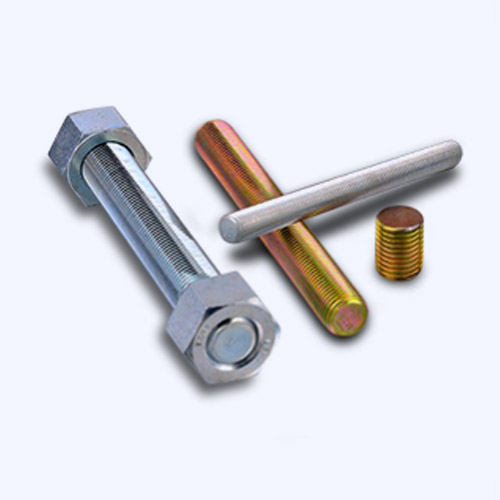

flange bolts and nuts
Nov . 14, 2024 20:20 Back to list
flange bolts and nuts
Flange bolts and nuts are essential components in various industrial applications, particularly in the field of construction, manufacturing, and mechanical engineering. These fasteners play a crucial role in joining two or more components securely, ensuring stability and structural integrity in various assemblies. Understanding the specifications, uses, and maintenance of flange bolts and nuts is vital for engineers, builders, and DIY enthusiasts alike.
Flange bolts are characterized by their unique design, which features a flange or an expanded circular area beneath the head. This flange serves as a washer, distributing the load over a larger surface area and reducing the risk of damage to the material being fastened. The design of flange bolts enables them to provide a strong grip, making them ideal for applications where high tensile strength is required. They are often used in joining sections of piping, machinery parts, and structural components in buildings.
Flange nuts, on the other hand, are designed to complement flange bolts. These nuts feature a built-in flange, which also helps distribute the load and provides a wider bearing surface, enhancing the overall grip. The combination of flange bolts and nuts can effectively secure connections while preventing loosening under vibration or thermal expansion.
When selecting flange bolts and nuts for a particular application, several factors should be considered. First, the material of the bolts and nuts should match the requirements of the project. Common materials include carbon steel, stainless steel, and alloy steel, each offering different levels of corrosion resistance, strength, and suitability for specific environments. For instance, stainless steel is often preferred in corrosive environments, such as marine applications or chemical processing, due to its excellent resistance to rust and corrosion.
flange bolts and nuts

Additionally, the size and thread type of the flange bolts and nuts must be appropriate for the assembly. Common thread types include UNC (Unified National Coarse), UNF (Unified National Fine), and metric threads. Proper size selection is crucial for ensuring a secure fit and preventing failure during operation.
Installation of flange bolts and nuts requires careful attention to torque specifications. Over-tightening can lead to bolt failure or damage to the materials being connected, while under-tightening can result in loose connections. Therefore, using a torque wrench to apply the correct amount of torque is essential.
Regular inspection and maintenance of flange bolts and nuts are vital to ensure safety and reliability. It is important to check for signs of wear, corrosion, or loosening, especially in applications subjected to vibrations or extreme environmental conditions. Timely replacement of damaged or worn components can prevent costly failures and enhance the longevity of the assembly.
In conclusion, flange bolts and nuts are indispensable in creating strong, durable connections in various industrial applications. By understanding their features, selecting the right materials, adhering to proper installation practices, and conducting regular maintenance, one can ensure the effectiveness and reliability of these critical fasteners in any project.
Latest news
-
High-Strength Hot Dip Galvanized Bolts - Hebei Longze | Corrosion Resistance, Customization
NewsJul.30,2025
-
Hot Dip Galvanized Bolts-Hebei Longze|Corrosion Resistance&High Strength
NewsJul.30,2025
-
High-Strength Hot-Dip Galvanized Bolts-Hebei Longze|Corrosion Resistance&High Strength
NewsJul.30,2025
-
Hot Dip Galvanized Bolts-Hebei Longze|Corrosion Resistance&High Strength
NewsJul.30,2025
-
Hot Dip Galvanized Bolts - Hebei Longze | Corrosion Resistance, High Strength
NewsJul.30,2025
-
High-Strength Hot Dip Galvanized Bolts-Hebei Longze|Corrosion Resistance, Grade 8.8
NewsJul.30,2025

